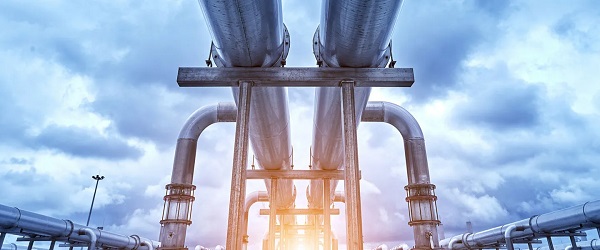Alberta
Can Trump Revive The Keystone Pipeline?


From the Daily Caller News Foundation
By David Blackmon
In a post on his Truth Social media platform Monday night, President Donald Trump said he still wants to see the Keystone XL pipeline through to completion. Here is the full text of the president’s post:
“Our Country’s doing really well, and today, I was just thinking, that the company building the Keystone XL Pipeline that was viciously jettisoned by the incompetent Biden administration should come back to America, and get it built — NOW! I know they were treated very badly by Sleepy Joe Biden, but the Trump Administration is very different — Easy approvals, almost immediate start! If not them, perhaps another Pipeline Company. We want the Keystone XL Pipeline built!”
For those unaware, the company that spent a decade attempting to finance, obtain permits, and build the Keystone XL pipeline project is TC Energy (formerly Trans Canada), which is headquartered in Calgary, Alberta, Canada.
Dear Readers:
As a nonprofit, we are dependent on the generosity of our readers.
Please consider making a small donation of any amount here. Thank you!
Fraught with controversy from the beginning, Keystone XL became a true political football during the Barack Obama presidency as the anti-oil and gas lobby in the U.S. mounted a disinformation campaign to kill public support for it. The mounting of the costly disinformation campaign made the process of obtaining permits at all levels of government – state, local, and federal – far more difficult and time-consuming, needlessly running up the project’s cost in the process.
After the Obama State Department led by Secretary John Kerry refused to issue the international cross-border permit required to complete the line, Trump quickly acted to ensure its approval early in his first term in office. By the time Joe Biden assumed office in January 2021, TC Energy had invested billions of dollars – creating thousands of high-paying jobs in the process – and well over half the line was already in the ground. Still, despite the huge sunk cost and lacking an ability to cite any instance in which TC Energy stood in violation of any U.S. law or regulation, Biden took the extraordinary, indefensible step of cancelling the project with the stroke of a pen.
But can the project really be revived now? It’s an important question given that Keystone XL was designed to bring as many as 830,000 barrels of Canadian oil per day into the United States for refining and delivery to markets.
Here, it is key to note that – as I pointed out last November when then-President-elect Trump raised this topic – TC Energy is no longer the owner of the moribund project. The remnants of Keystone XL were included in a group of assets TC Energy spun off last year when it formed a new company named South Bow Energy.
Complicating matters further is the fact that, after it decided the pipeline was a lost cause back in 2021, TC Energy pulled the installed pipe out of the ground so it could be repurposed for other projects in its portfolio. Then, there’s the fact that many of the permits the company spent years trying to obtain from various levels of governments are no longer valid and would have to go through the application and approval processes again were the project to be revived.
At the federal level, the Department of Interior and FERC would govern most of the necessary permitting processes. President Trump ordered all of his departments and commissions in January to research ways the executive branch can streamline the federal processes and Interior Secretary Doug Burgum included that goal as one of his 6 top priorities in a memo to staff dated February 3.
But even if those projects are successful in speeding up permitting at the federal level, they would have no impact on such challenges at the state and local levels. Activist groups who organized the opposition to the project saw great success in holding up permitting issuances at these lower levels of government, and would no doubt revive that strategy to attack any effort to restart the pipeline.
There can be no doubt that Trump’s desire to get the pipeline built is a laudable goal from a commercial, environmental and national security standpoint. Whether it is a practical goal is another question with many factors arrayed in opposition to it.
But one thing I’ve learned long ago is to never underestimate Donald Trump’s ability to get a deal done, so no one should give up hope just yet.
David Blackmon is an energy writer and consultant based in Texas. He spent 40 years in the oil and gas business, where he specialized in public policy and communications.
Alberta
Alberta Premier Danielle Smith Discusses Moving Energy Forward at the Global Energy Show in Calgary

From Energy Now
At the energy conference in Calgary, Alberta Premier Danielle Smith pressed the case for building infrastructure to move provincial products to international markets, via a transportation and energy corridor to British Columbia.
“The anchor tenant for this corridor must be a 42-inch pipeline, moving one million incremental barrels of oil to those global markets. And we can’t stop there,” she told the audience.
The premier reiterated her support for new pipelines north to Grays Bay in Nunavut, east to Churchill, Man., and potentially a new version of Energy East.
The discussion comes as Prime Minister Mark Carney and his government are assembling a list of major projects of national interest to fast-track for approval.
Carney has also pledged to establish a major project review office that would issue decisions within two years, instead of five.
Alberta
Punishing Alberta Oil Production: The Divisive Effect of Policies For Carney’s “Decarbonized Oil”

From Energy Now
By Ron Wallace
The federal government has doubled down on its commitment to “responsibly produced oil and gas”. These terms are apparently carefully crafted to maintain federal policies for Net Zero. These policies include a Canadian emissions cap, tanker bans and a clean electricity mandate.
Following meetings in Saskatoon in early June between Prime Minister Mark Carney and Canadian provincial and territorial leaders, the federal government expressed renewed interest in the completion of new oil pipelines to reduce reliance on oil exports to the USA while providing better access to foreign markets. However Carney, while suggesting that there is “real potential” for such projects nonetheless qualified that support as being limited to projects that would “decarbonize” Canadian oil, apparently those that would employ carbon capture technologies. While the meeting did not result in a final list of potential projects, Alberta Premier Danielle Smith said that this approach would constitute a “grand bargain” whereby new pipelines to increase oil exports could help fund decarbonization efforts. But is that true and what are the implications for the Albertan and Canadian economies?
The federal government has doubled down on its commitment to “responsibly produced oil and gas”. These terms are apparently carefully crafted to maintain federal policies for Net Zero. These policies include a Canadian emissions cap, tanker bans and a clean electricity mandate. Many would consider that Canadians, especially Albertans, should be wary of these largely undefined announcements in which Ottawa proposes solely to determine projects that are “in the national interest.”
The federal government has tabled legislation designed to address these challenges with Bill C-5: An Act to enact the Free Trade and Labour Mobility Act and the Building Canada Act (the One Canadian Economy Act). Rather than replacing controversial, and challenged, legislation like the Impact Assessment Act, the Carney government proposes to add more legislation designed to accelerate and streamline regulatory approvals for energy and infrastructure projects. However, only those projects that Ottawa designates as being in the national interest would be approved. While clearer, shorter regulatory timelines and the restoration of the Major Projects Office are also proposed, Bill C-5 is to be superimposed over a crippling regulatory base.
It remains to be seen if this attempt will restore a much-diminished Canadian Can-Do spirit for economic development by encouraging much-needed, indeed essential interprovincial teamwork across shared jurisdictions. While the Act’s proposed single approval process could provide for expedited review timelines, a complex web of regulatory processes will remain in place requiring much enhanced interagency and interprovincial coordination. Given Canada’s much-diminished record for regulatory and policy clarity will this legislation be enough to persuade the corporate and international capital community to consider Canada as a prime investment destination?
As with all complex matters the devil always lurks in the details. Notably, these federal initiatives arrive at a time when the Carney government is facing ever-more pressing geopolitical, energy security and economic concerns. The Organization for Economic Co-operation and Development predicts that Canada’s economy will grow by a dismal one per cent in 2025 and 1.1 per cent in 2026 – this at a time when the global economy is predicted to grow by 2.9 per cent.
It should come as no surprise that Carney’s recent musing about the “real potential” for decarbonized oil pipelines have sparked debate. The undefined term “decarbonized”, is clearly aimed directly at western Canadian oil production as part of Ottawa’s broader strategy to achieve national emissions commitments using costly carbon capture and storage (CCS) projects whose economic viability at scale has been questioned. What might this mean for western Canadian oil producers?
The Alberta Oil sands presently account for about 58% of Canada’s total oil output. Data from December 2023 show Alberta producing a record 4.53 million barrels per day (MMb/d) as major oil export pipelines including Trans Mountain, Keystone and the Enbridge Mainline operate at high levels of capacity. Meanwhile, in 2023 eastern Canada imported on average about 490,000 barrels of crude oil per day (bpd) at a cost estimated at CAD $19.5 billion. These seaborne shipments to major refineries (like New Brunswick’s Irving Refinery in Saint John) rely on imported oil by tanker with crude oil deliveries to New Brunswick averaging around 263,000 barrels per day. In 2023 the estimated total cost to Canada for imported crude oil was $19.5 billion with oil imports arriving from the United States (72.4%), Nigeria (12.9%), and Saudi Arabia (10.7%). Since 1988, marine terminals along the St. Lawrence have seen imports of foreign oil valued at more than $228 billion while the Irving Oil refinery imported $136 billion from 1988 to 2020.
What are the policy and cost implication of Carney’s call for the “decarbonization” of western Canadian produced, oil? It implies that western Canadian “decarbonized” oil would have to be produced and transported to competitive world markets under a material regulatory and financial burden. Meanwhile, eastern Canadian refiners would be allowed to import oil from the USA and offshore jurisdictions free from any comparable regulatory burdens. This policy would penalize, and makes less competitive, Canadian producers while rewarding offshore sources. A federal regulatory requirement to decarbonize western Canadian crude oil production without imposing similar restrictions on imported oil would render the One Canadian Economy Act moot and create two market realities in Canada – one that favours imports and that discourages, or at very least threatens the competitiveness of, Canadian oil export production.
Ron Wallace is a former Member of the National Energy Board.
-

 International1 day ago
International1 day agoIsrael’s Decapitation Strike on Iran Reverberates Across Global Flashpoints
-

 Business2 days ago
Business2 days agoThe carbon tax’s last stand – and what comes after
-

 National2 days ago
National2 days agoCarney promotes MP instrumental in freezing Freedom Convoy donors’ bank accounts
-

 Business1 day ago
Business1 day agoTrump: ‘Changes are coming’ to aggressive immigration policy after business complaints
-

 illegal immigration1 day ago
illegal immigration1 day agoLA protests continue as judge pulls back CA National Guard ahead of ‘No Kings Day’
-

 Business2 days ago
Business2 days agoOur addiction to dairy supply management is turning Canada into a trade pariah
-

 Alberta2 days ago
Alberta2 days agoOil prices are headed for a hard fall
-

 Business2 days ago
Business2 days ago84% of Swiss hospitals and 60% of hospitalizations are in private facilities, and they face much lower wait times






